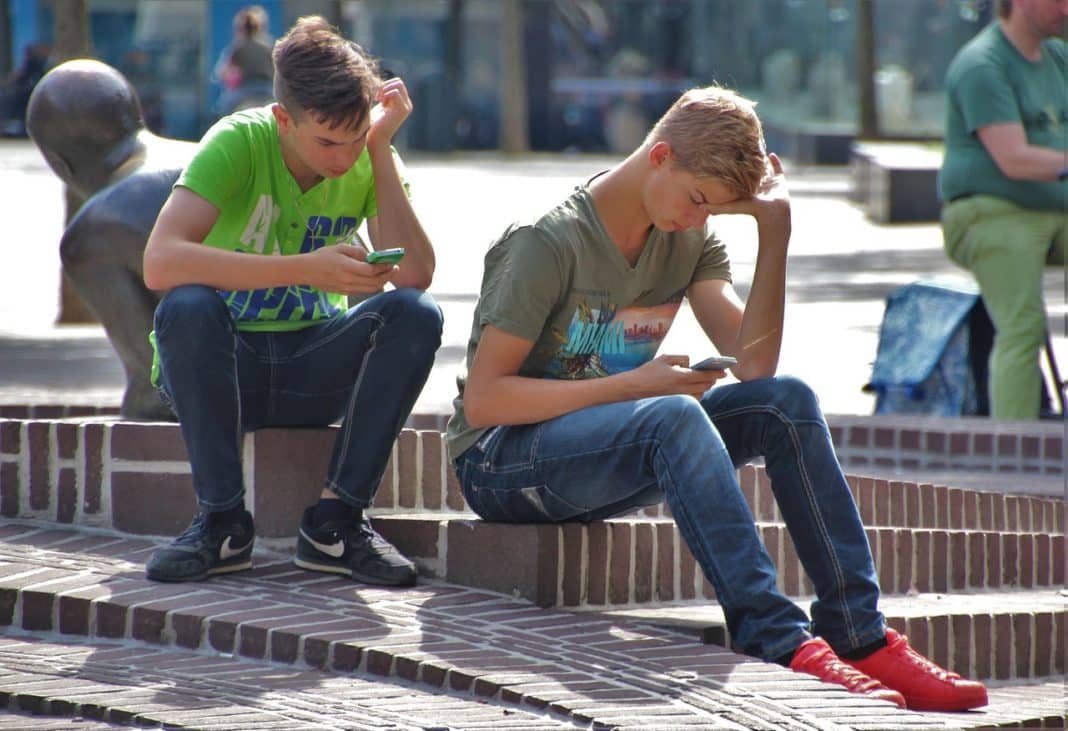Thousands of teenagers returned to class this month in the Valencian Community, but for many of them, that technologic extension known as their mobile phone has had to stay at home, as more and more schools are starting to ban these devices.
There are many reasons why mobiles are being banned in schools, and it is up to each individual school to decide their own rules, however one of the primary factors has been the claim that it is “a source of conflict” especially in the playground, and contributes to bullying, another is to encourage young people to interact with each other face to face, and educate them in responsible use of a fairly powerful miniature computer.
According to Rubén Pacheco, spokesperson for the Gonzalo Anaya Confederation of Ampas, which groups more than 1,000 parent groups throughout Valencia, many institutes are opting for this measure, each one in its own way. The IES Camp de Morvedre, in the Port of Sagunto, carried out a test in May of last year with very good results, since mobile phones barely had to be requisitioned. Telephones were prohibited throughout the campus except for some vocational training students because they needed them.
They could not use them in the patio, but they could do other activities organised by the centre, in addition to playing chess or board games. At the IES Clot de Moro in the same region they put the same rules, also with good results.
At the IES Alcalá de la Pobla de Farnals there was an exception in one class as teacher Toni González Picornell, president of the Community’s secondary school principals, explained that “sometimes I have told my students ‘take out your cell phone’ in class.” Because the mobile can also be used to learn in some cases. “I organised an activity for museum week, and I placed different QR codes in the hallways, I told them to take their cell phones and read them. Surprisingly, they complied,” says Picornell.
There is a middle ground like that of IES 26 Misericordia, in Valencia, which prohibits “exhibiting mobile phones or any electronic device” but they can be used in the playground, with the exception of first year ESO students who cannot carry them under any circumstances.
Picornell is not a fan of the mobile phone in the playground and explains that there were problems when this decision was made in Cantabria. “The students took out their cell phones even between classes, and that is not good for them,” he says. Cyberbullying is a growing problem, and the use of mobile phones amplifies the problem, both in school, and outside.
In their school, which also prohibits the telephone, it is prohibited in the playground to ensure that they “socially interact face to face, interact and play. We do not want them to spend time engrossed in the telephone and talking on social networks, because that It’s not healthy,” says Picornell.
“Mobile phones have changed a lot. They are no longer those devices with which you could only call or at most send an SMS. Now they are quite powerful computers and tools with which you can do everything,” explains Picornell. He is in favour of educating adolescents as much as possible in the use of this tool since at those ages “they are very unconscious.”
“Look at the case of the Real Madrid youth academy players arrested for sharing a sex video. We must educate so that things like this are not repeated, and so that they are very clear that doing things like this is a crime,” Picornell points out. Furthermore, he is honest and acknowledges that “although phones are prohibited in the centre, when there is a conflict, several people always come out to record the event.”





